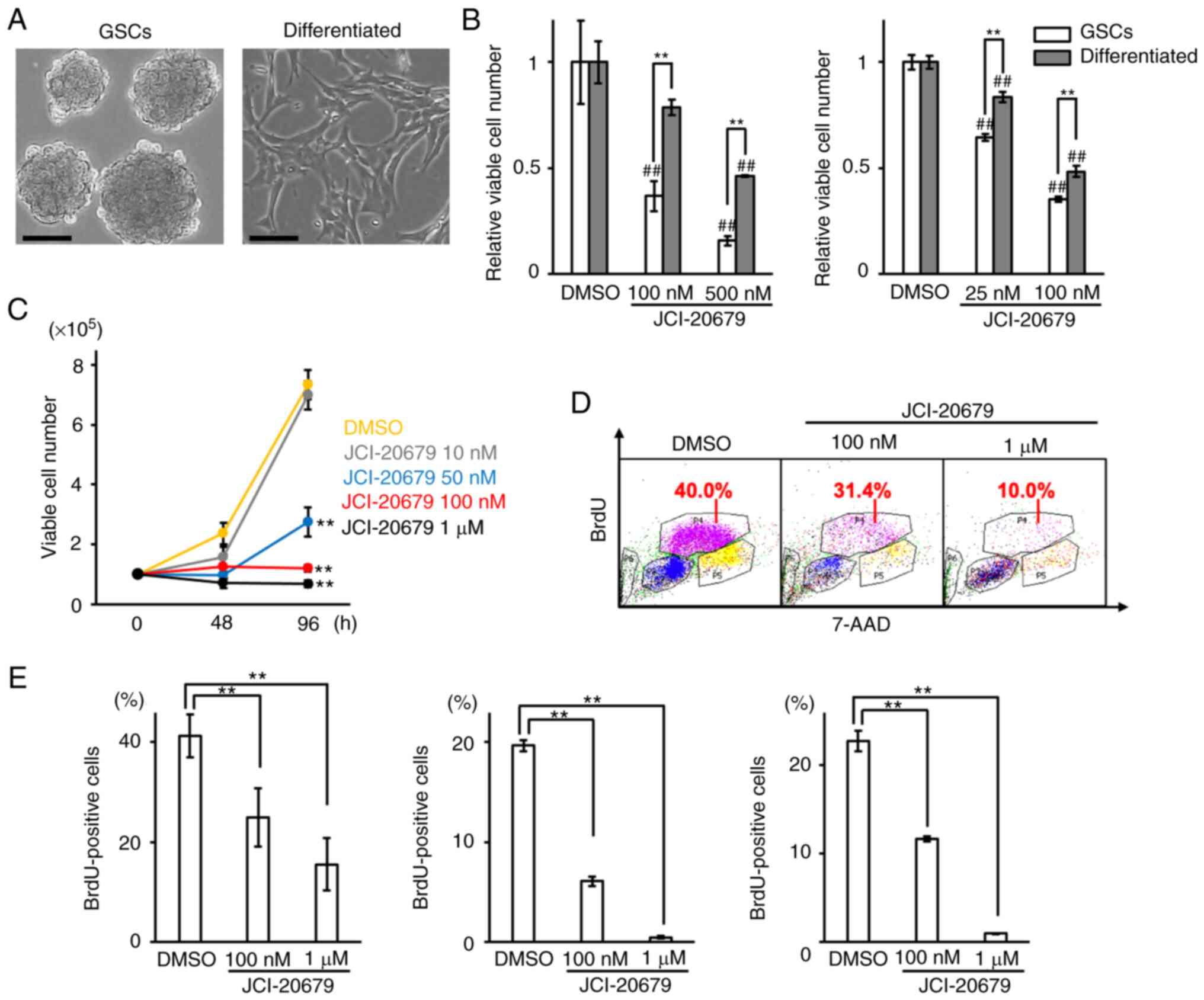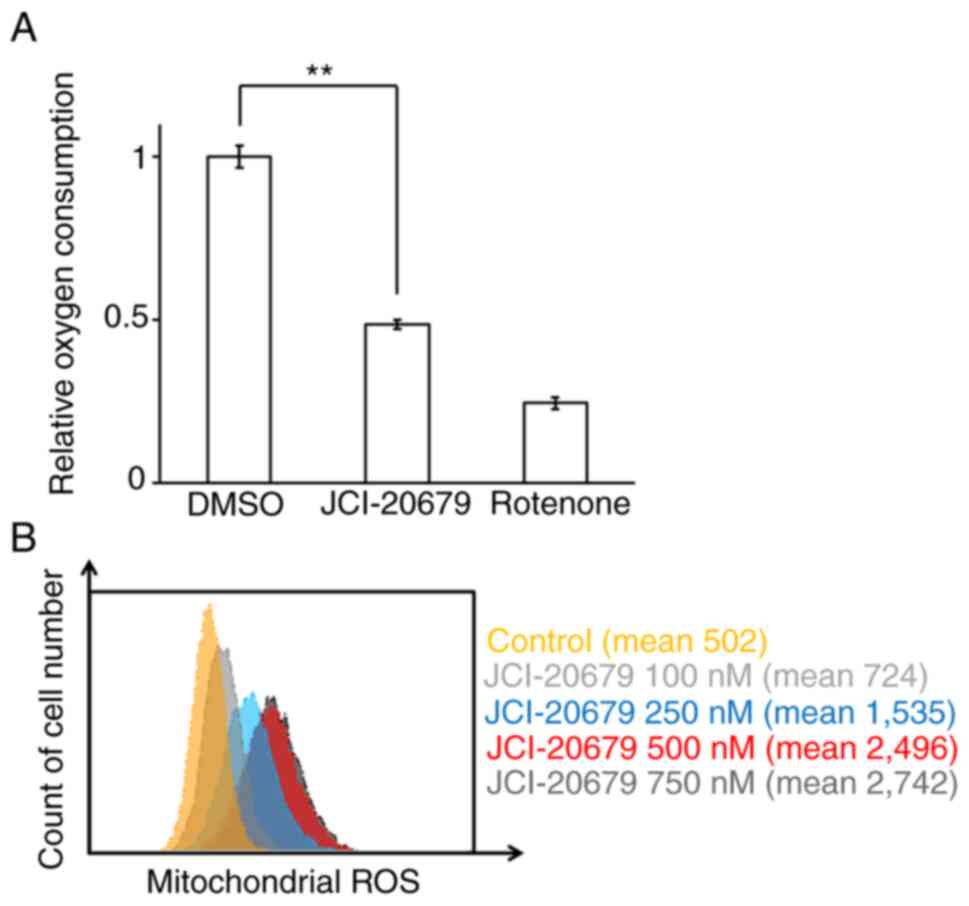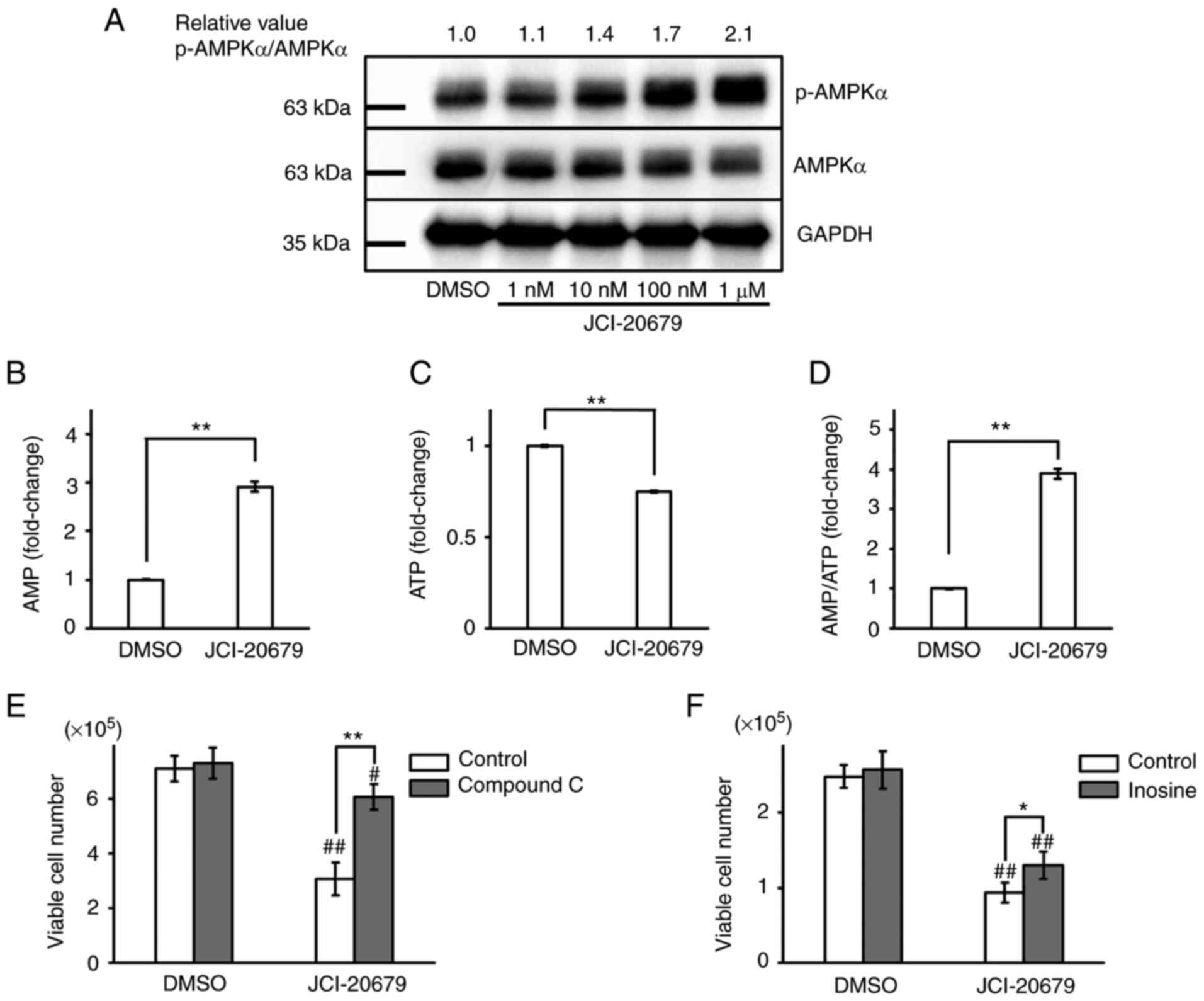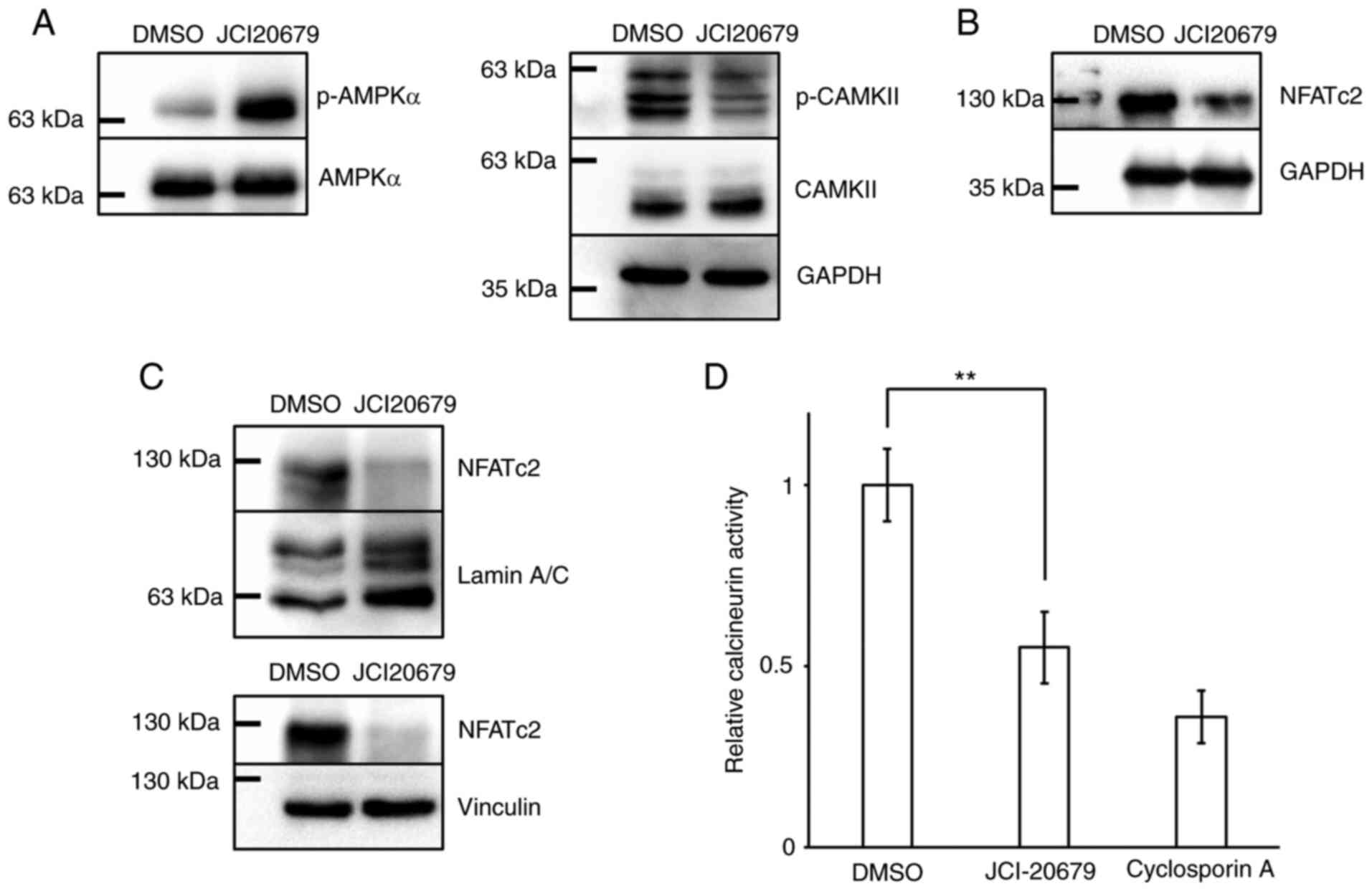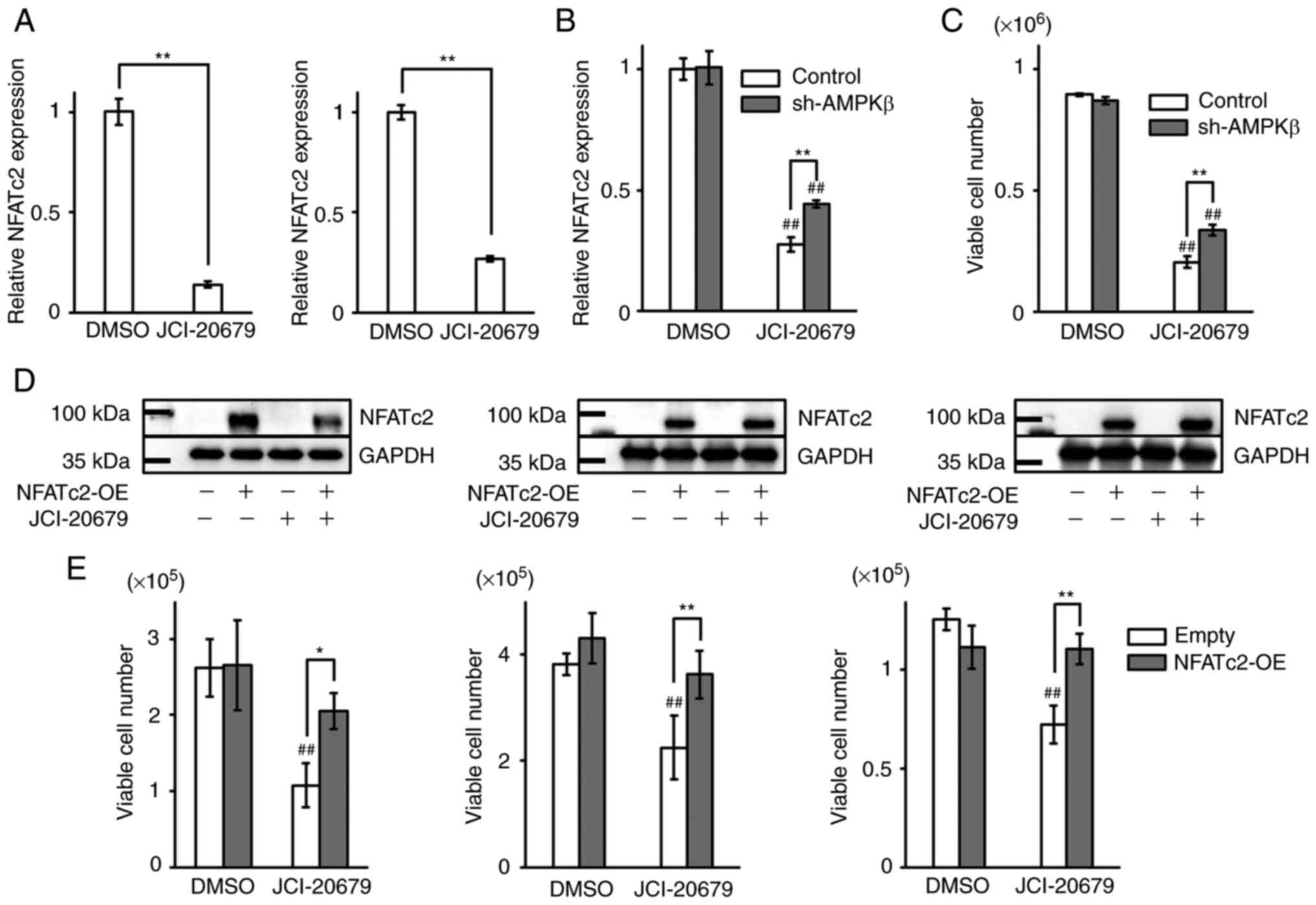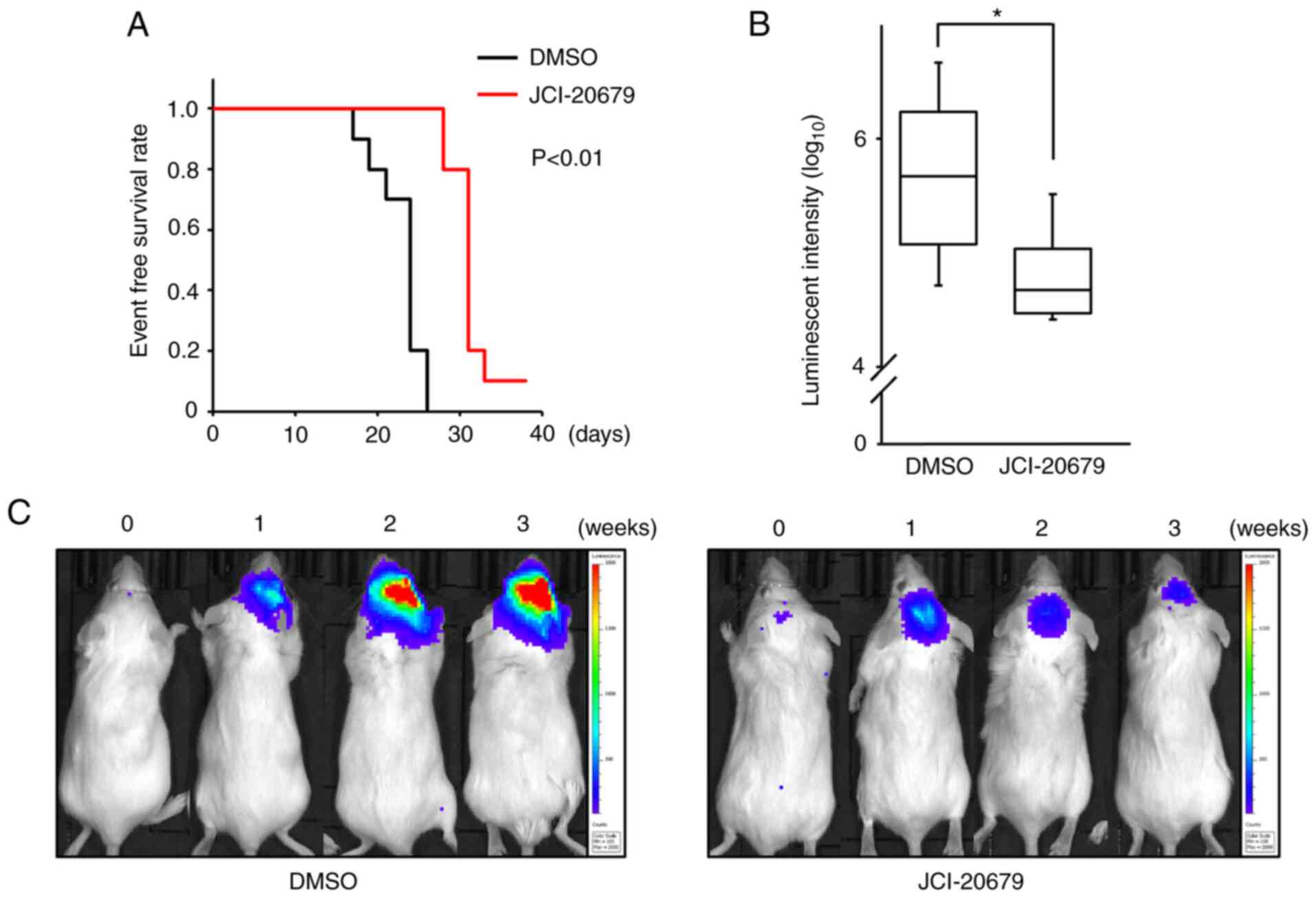|
1
|
Stupp R, Mason WP, van den Bent MJ, Weller
M, Fisher B, Taphoorn MJ, Belanger K, Brandes AA, Marosi C, Bogdahn
U, et al: Radiotherapy plus concomitant and adjuvant temozolomide
for glioblastoma. N Engl J Med. 352:987–996. 2005. View Article : Google Scholar : PubMed/NCBI
|
|
2
|
Marenco-Hillembrand L, Wijesekera O,
Suarez-Meade P, Mampre D, Jackson C, Peterson J, Trifiletti D,
Hammack J, Ortiz K, Lesser E, et al: Trends in glioblastoma:
Outcomes over time and type of intervention: A systematic evidence
based analysis. J Neurooncol. 147:297–307. 2020. View Article : Google Scholar
|
|
3
|
Chinot OL, Wick W, Mason W, Henriksson R,
Saran F, Nishikawa R, Carpentier AF, Hoang-Xuan K, Kavan P, Cernea
D, et al: Bevacizumab plus radiotherapy-temozolomide for newly
diagnosed glioblastoma. N Engl J Med. 370:709–722. 2014. View Article : Google Scholar : PubMed/NCBI
|
|
4
|
Sancho P, Barneda D and Heeschen C:
Hallmarks of cancer stem cell metabolism. Br J Cancer.
114:1305–1312. 2016. View Article : Google Scholar : PubMed/NCBI
|
|
5
|
Singh SK, Hawkins C, Clarke ID, Squire JA,
Bayani J, Hide T, Henkelman RM, Cusimano MD and Dirks PB:
Identification of human brain tumour initiating cells. Nature.
432:396–401. 2004. View Article : Google Scholar : PubMed/NCBI
|
|
6
|
Schonberg DL, Lubelski D, Miller TE and
Rich JN: Brain tumor stem cells: Molecular characteristics and
their impact on therapy. Mol Aspects Med. 39:82–101. 2014.
View Article : Google Scholar : PubMed/NCBI
|
|
7
|
Bueno MJ, Ruiz-Sepulveda JL and
Quintela-Fandino M: Mitochondrial inhibition: A treatment strategy
in cancer? Curr Oncol Rep. 23:492021. View Article : Google Scholar : PubMed/NCBI
|
|
8
|
Yang SH, Li S, Lu G, Xue H, Kim DH, Zhu JJ
and Liu Y: Metformin treatment reduces temozolomide resistance of
glioblastoma cells. Oncotarget. 7:78787–78803. 2016. View Article : Google Scholar
|
|
9
|
Gao X, Yang Y, Wang J, Zhang L, Sun C,
Wang Y, Zhang J, Dong H, Zhang H, Gao C, et al: Inhibition of
mitochondria NADH-Ubiquinone oxidoreductase (complex I) sensitizes
the radioresistant glioma U87MG cells to radiation. Biomed
Pharmacother. 129:1104602020. View Article : Google Scholar : PubMed/NCBI
|
|
10
|
Myint SH, Cortes D, Laurens A,
Hocquemiller R, Lebȩuf M, Cavé A, Cotte J and Quéro AM: Solamin, a
cytotoxic mono-tetrahydrofuranic γ-lactone acetogenin from Annona
muricata seeds. Phytochemistry. 30:3335–3338. 1991. View Article : Google Scholar
|
|
11
|
Kojima N, Fushimi T, Tatsukawa T, Tanaka
T, Okamura M, Akatsuka A, Yamori T, Dan S, Iwasaki H and Yamashita
M: Thiophene-3-carboxamide analogue of annonaceous acetogenins as
antitumor drug lead. Eur J Med Chem. 86:684–689. 2014. View Article : Google Scholar : PubMed/NCBI
|
|
12
|
Ohta K, Akatsuka A, Dan S, Iwasaki H,
Yamashita M and Kojima N: Structure-activity relationships of
thiophene carboxamide annonaceous acetogenin analogs: Shortening
the alkyl chain in the tail part significantly affects their growth
inhibitory activity against human cancer cell lines. Chem Pharm
Bull (Tokyo). 69:1029–1033. 2021. View Article : Google Scholar : PubMed/NCBI
|
|
13
|
Matsumoto T, Akatsuka A, Dan S, Iwasaki H,
Yamashita M and Kojima N: Synthesis and cancer cell growth
inhibition effects of acetogenin analogs bearing ethylene glycol
units for enhancing the water solubility. Tetrahedron.
76:1310582020. View Article : Google Scholar
|
|
14
|
Matsumoto T, Kojima N, Akatsuka A, Yamori
T, Dan S, Iwasaki H and Yamashita M: Convergent synthesis of
stereoisomers of THF ring moiety of acetogenin thiophene analogue
and their antiproliferative activities against human cancer cell
lines. Tetrahedron. 73:2359–2366. 2017. View Article : Google Scholar
|
|
15
|
Akatsuka A, Kojima N, Okamura M, Dan S and
Yamori T: A novel thiophene-3-carboxamide analog of annonaceous
acetogenin exhibits antitumor activity via inhibition of
mitochondrial complex I. Pharmacol Res Perspect. 4:e002462016.
View Article : Google Scholar
|
|
16
|
Wiesner SM, Decker SA, Larson JD, Ericson
K, Forster C, Gallardo JL, Long C, Demorest ZL, Zamora EA, Low WC,
et al: De novo induction of genetically engineered brain tumors in
mice using plasmid DNA. Cancer Res. 69:431–439. 2009. View Article : Google Scholar : PubMed/NCBI
|
|
17
|
Tanigawa S, Fujita M, Moyama C, Ando S, Ii
H, Kojima Y, Fujishita T, Aoki M, Takeuchi H, Yamanaka T, et al:
Inhibition of Gli2 suppresses tumorigenicity in glioblastoma stem
cells derived from a de novo murine brain cancer model. Cancer Gene
Ther. 28:1339–1352. 2021. View Article : Google Scholar : PubMed/NCBI
|
|
18
|
Fujita M, Scheurer ME, Decker SA, McDonald
HA, Kohanbash G, Kastenhuber ER, Kato H, Bondy ML, Ohlfest JR and
Okada H: Role of type 1 IFNs in antiglioma immunosurveillance-using
mouse studies to guide examination of novel prognostic markers in
humans. Clin Cancer Res. 16:3409–3419. 2010. View Article : Google Scholar : PubMed/NCBI
|
|
19
|
Taniguchi K, Kageyama S, Moyama C, Ando S,
Ii H, Ashihara E, Horinaka M, Sakai T, Kubota S, Kawauchi A and
Nakata S: γ-Glutamylcyclotransferase, a novel regulator of HIF-1α
expression, triggers aerobic glycolysis. Cancer Gene Ther.
29:37–48. 2021. View Article : Google Scholar : PubMed/NCBI
|
|
20
|
Livak KJ and Schmittgen TD: Analysis of
relative gene expression data using real-time quantitative PCR and
the 2(−Delta Delta C(T)) method. Methods. 25:402–408. 2001.
View Article : Google Scholar : PubMed/NCBI
|
|
21
|
Garcia D and Shaw RJ: AMPK: Mechanisms of
cellular energy sensing and restoration of metabolic balance. Mol
Cell. 66:789–800. 2017. View Article : Google Scholar
|
|
22
|
Pathak T and Trebak M: Mitochondrial Ca2+
signaling. Pharmacol Ther. 192:112–123. 2018. View Article : Google Scholar : PubMed/NCBI
|
|
23
|
Hardie DG, Ross FA and Hawley SA: AMPK: A
nutrient and energy sensor that maintains energy homeostasis. Nat
Rev Mol Cell Biol. 13:251–262. 2012. View
Article : Google Scholar
|
|
24
|
Mognol GP, Carneiro FR, Robbs BK, Faget DV
and Viola JP: Cell cycle and apoptosis regulation by NFAT
transcription factors: New roles for an old player. Cell Death Dis.
7:e21992016. View Article : Google Scholar : PubMed/NCBI
|
|
25
|
Chen Y, Yuen WH, Fu J, Huang G, Melendez
AJ, Ibrahim FB, Lu H and Cao X: The mitochondrial respiratory chain
controls intracellular calcium signaling and NFAT activity
essential for heart formation in Xenopus laevis. Mol Cell Biol.
27:6420–6432. 2007. View Article : Google Scholar
|
|
26
|
Tie X, Han S, Meng L, Wang Y and Wu A:
NFAT1 is highly expressed in, and regulates the invasion of,
glioblastoma multiforme cells. PLoS One. 8:e660082013. View Article : Google Scholar : PubMed/NCBI
|
|
27
|
Jiang Y, Song Y, Wang R, Hu T, Zhang D,
Wang Z, Tie X, Wang M and Han S: NFAT1-mediated regulation of NDEL1
promotes growth and invasion of glioma stem-like cells. Cancer Res.
79:2593–2603. 2019. View Article : Google Scholar : PubMed/NCBI
|
|
28
|
Liu Z, Li H, He L, Xiang Y, Tian C, Li C,
Tan P, Jing J, Tian Y, Du L, et al: Discovery of small-molecule
inhibitors of the HSP90-calcineurin-NFAT pathway against
glioblastoma. cell Chem Biol. 26:352–365.e7. 2019. View Article : Google Scholar
|
|
29
|
Chan AY, Dolinsky VW, Soltys CL, Viollet
B, Baksh S, Light PE and Dyck JR: Resveratrol inhibits cardiac
hypertrophy via AMP-activated protein kinase and Akt. J Biol Chem.
283:24194–201. 2008. View Article : Google Scholar : PubMed/NCBI
|
|
30
|
Rabinovitch RC, Samborska B, Faubert B, Ma
EH, Gravel SP, Andrzejewski S, Raissi TC, Pause A, St-Pierre J and
Jones RG: AMPK maintains cellular metabolic homeostasis through
regulation of mitochondrial reactive oxygen species. Cell Rep.
21:1–9. 2017. View Article : Google Scholar : PubMed/NCBI
|
|
31
|
Ghosh P, Vidal C, Dey S and Zhang L:
Mitochondria targeting as an effective strategy for cancer therapy.
Int J Mol Sci. 21:33632020. View Article : Google Scholar
|
|
32
|
Guntuku L, Naidu VG and Yerra VG:
Mitochondrial dysfunction in gliomas: pharmacotherapeutic potential
of natural compounds. Curr Neuropharmacol. 14:567–583. 2016.
View Article : Google Scholar
|
|
33
|
Maraka S, Groves MD, Mammoser AG,
Melguizo-Gavilanes I, Conrad CA, Tremont-Lukats IW, Loghin ME,
O'Brien BJ, Puduvalli VK, Sulman EP, et al: Phase 1 lead-in to a
phase 2 factorial study of temozolomide plus memantine, mefloquine,
and metformin as postradiation adjuvant therapy for newly diagnosed
glioblastoma. Cancer. 125:424–433. 2019. View Article : Google Scholar : PubMed/NCBI
|
|
34
|
Zhao B, Luo J, Yu T, Zhou L, Lv H and
Shang P: Anticancer mechanisms of metformin: A review of the
current evidence. Life Sci. 254:1177172020. View Article : Google Scholar
|















